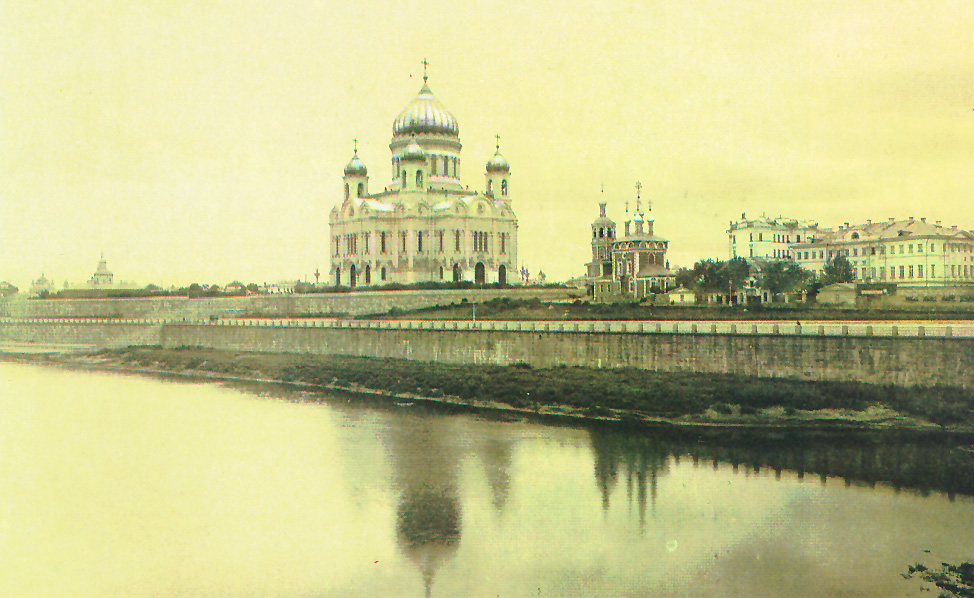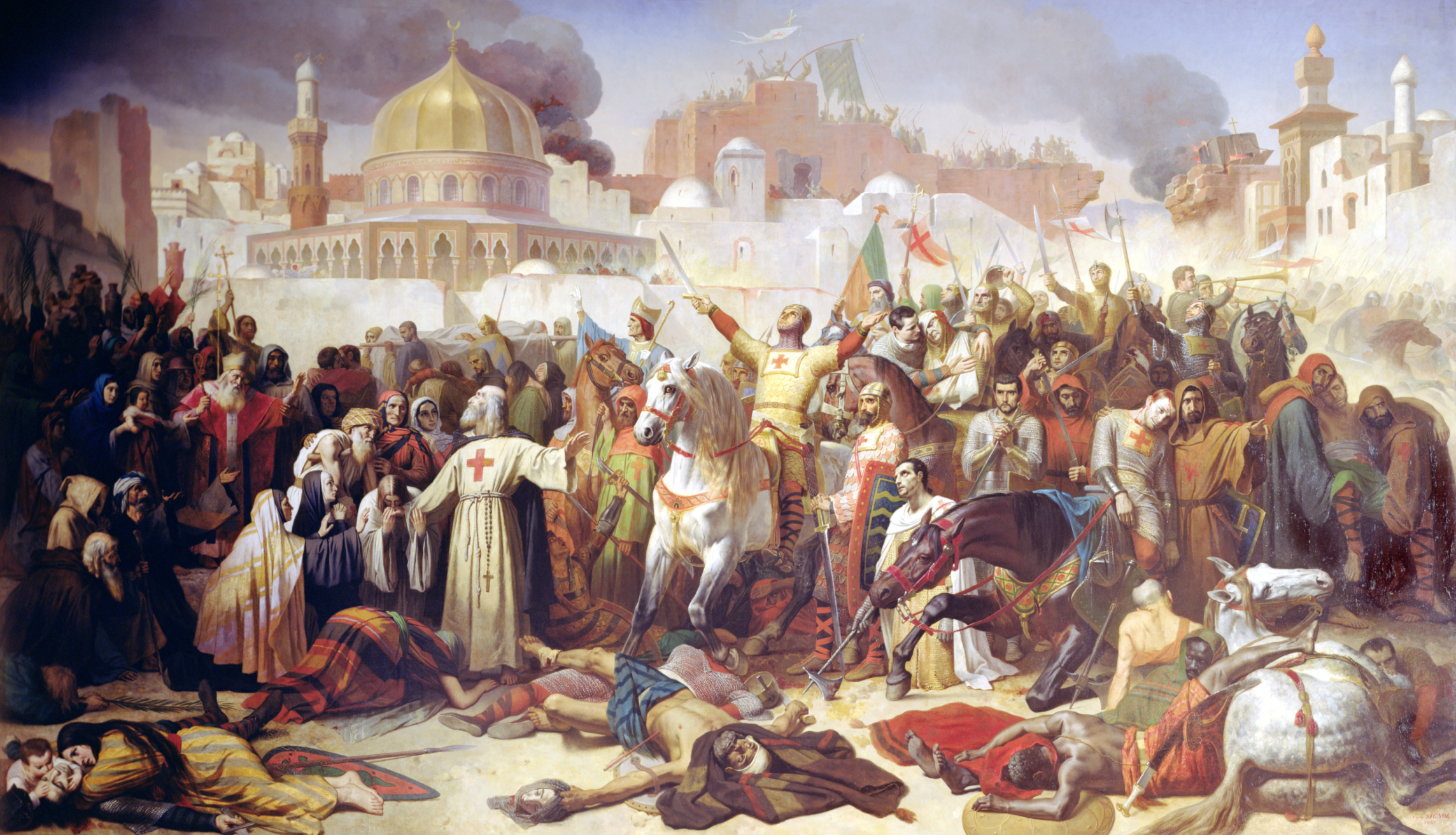|
Voinstvuiuschii Ateizm
Voinstvuiuschii ateizm (russian: «Воинствующий атеизм»; german: «Der kämpfende Atheismus»; eo, «Militanta ateismo»; lit. «Militant Atheism») was an antireligious monthly magazine in Russian, German and Esperanto, which was published in the course of 1931, January to December, in the USSR. League of Militant Atheists began publishing a magazine «Voinstvuiuschii ateizm» in 1931. Dimitry V. PospielovskyA History of Soviet Atheism in Theory, and Practice, and the Believer, vol 1: A History of Marxist-Leninist Atheism and Soviet Anti-Religious Policies, St Martin's Press, New York (1987) p. 61./ref> The magazine was the organ of the Central Council of the League of Militant Atheists of the USSR. P. A. Krasikov became the editor-in-chief of the magazine. This magazine was a replacement for the magazine « Ateist». The editorial board of the journal included Y. M. Yaroslavsky, F. M. Putintsev, A. A. Ivanovskii, E. D. Krinitsky, A. T. Lukachevsky, N. M ... [...More Info...] [...Related Items...] OR: [Wikipedia] [Google] [Baidu] |
Pyotr Krasikov
Pyotr Ananyevich Krasikov (russian: Петр Ананьевич Красиков; 17 October Old_Style_and_New_Style_dates">O.S._5_October.html" ;"title="Old_Style_and_New_Style_dates.html" ;"title="nowiki/>O.S._5_October">Old_Style_and_New_Style_dates.html"_;"title="nowiki/>Old_Style_and_New_Style_dates">O.S._5_October1870_–_20_August_1939)_was_a_ O.S._5_October">Old_Style_and_New_Style_dates.html"_;"title="nowiki/>Old_Style_and_New_Style_dates">O.S._5_October1870_–_20_August_1939)_was_a_Russians">Russian_revolutionary_and_functionary_of_the_All-Union_Communist_Party_(bolsheviks).html" ;"title="Russians.html" "title="Old Style and New Style dates">O.S. 5 October">Old_Style_and_New_Style_dates.html" ;"title="nowiki/>Old Style and New Style dates">O.S. 5 October1870 – 20 August 1939) was a Russians">Russian revolutionary and functionary of the All-Union Communist Party (bolsheviks)">All-Union Communist Party (Bolsheviks) and politician of the Soviet Union as well ... [...More Info...] [...Related Items...] OR: [Wikipedia] [Google] [Baidu] |
Bezbozhnik (newspaper)
''Bezbozhnik'' (russian: Безбожник; "The Godless One") was an anti-religious and atheistic newspaper published in the Soviet Union between 1922 and 1941 by the League of Militant Atheists. Its first issue was published in December 1922, with a print run of 15,000, but its circulation reached as much as 200,000 in 1932. Between 1923 and 1931, there was also a magazine called '' Bezbozhnik u Stanka'' (Безбожник у станка; "The Godless One at the Workbench").Anna Shternshis, ''Soviet and Kosher: Jewish Popular Culture in the Soviet Union,1923-1939.'' Bloomington, IN: Indiana University Press, 2006, p. 150-155. From 1928 to 1932 a magazine for peasants Derevenskiy Bezbozhnik (Деревенский безбожник; "The Rural Godless One") was published. In 1928, one issue of the magazine Bezbozhnik za kul'turnuyu revolyutsiyu (Безбожник за культурную революцию; "The Godless One for the Cultural Revolution") was published. ... [...More Info...] [...Related Items...] OR: [Wikipedia] [Google] [Baidu] |
Magazines Disestablished In 1931
A magazine is a periodical publication, generally published on a regular schedule (often weekly or monthly), containing a variety of content. They are generally financed by advertising, purchase price, prepaid subscriptions, or by a combination of the three. Definition In the technical sense a ''journal'' has continuous pagination throughout a volume. Thus '' Business Week'', which starts each issue anew with page one, is a magazine, but the '' Journal of Business Communication'', which continues the same sequence of pagination throughout the coterminous year, is a journal. Some professional or trade publications are also peer-reviewed, for example the '' Journal of Accountancy''. Non-peer-reviewed academic or professional publications are generally ''professional magazines''. That a publication calls itself a ''journal'' does not make it a journal in the technical sense; ''The Wall Street Journal'' is actually a newspaper. Etymology The word "magazine" derives from Arabic , ... [...More Info...] [...Related Items...] OR: [Wikipedia] [Google] [Baidu] |
1931 Establishments In The Soviet Union
Events January * January 2 – South Dakota native Ernest Lawrence invents the cyclotron, used to accelerate particles to study nuclear physics. * January 4 – German pilot Elly Beinhorn begins her flight to Africa. * January 22 – Sir Isaac Isaacs is sworn in as the first Australian-born Governor-General of Australia. * January 25 – Mohandas Gandhi is again released from imprisonment in India. * January 27 – Pierre Laval forms a government in France. February * February 4 – Soviet leader Joseph Stalin gives a speech calling for rapid industrialization, arguing that only strong industrialized countries will win wars, while "weak" nations are "beaten". Stalin states: "We are fifty or a hundred years behind the advanced countries. We must make good this distance in ten years. Either we do it, or they will crush us." The first five-year plan in the Soviet Union is intensified, for the industrialization and collectivization of agriculture. * February 10 – Official ... [...More Info...] [...Related Items...] OR: [Wikipedia] [Google] [Baidu] |
Magazines Published In Moscow
A magazine is a periodical publication, generally published on a regular schedule (often weekly or monthly), containing a variety of content. They are generally financed by advertising, purchase price, prepaid subscriptions, or by a combination of the three. Definition In the technical sense a ''journal'' has continuous pagination throughout a volume. Thus ''Business Week'', which starts each issue anew with page one, is a magazine, but the '' Journal of Business Communication'', which continues the same sequence of pagination throughout the coterminous year, is a journal. Some professional or trade publications are also peer-reviewed, for example the '' Journal of Accountancy''. Non-peer-reviewed academic or professional publications are generally ''professional magazines''. That a publication calls itself a ''journal'' does not make it a journal in the technical sense; ''The Wall Street Journal'' is actually a newspaper. Etymology The word "magazine" derives from Arabic , th ... [...More Info...] [...Related Items...] OR: [Wikipedia] [Google] [Baidu] |
1931 Disestablishments In The Soviet Union
Events January * January 2 – South Dakota native Ernest Lawrence invents the cyclotron, used to accelerate particles to study nuclear physics. * January 4 – German pilot Elly Beinhorn begins her flight to Africa. * January 22 – Sir Isaac Isaacs is sworn in as the first Australian-born Governor-General of Australia. * January 25 – Mohandas Gandhi is again released from imprisonment in India. * January 27 – Pierre Laval forms a government in France. February * February 4 – Soviet leader Joseph Stalin gives a speech calling for rapid industrialization, arguing that only strong industrialized countries will win wars, while "weak" nations are "beaten". Stalin states: "We are fifty or a hundred years behind the advanced countries. We must make good this distance in ten years. Either we do it, or they will crush us." The first five-year plan in the Soviet Union is intensified, for the industrialization and collectivization of agriculture. * February 10 – O ... [...More Info...] [...Related Items...] OR: [Wikipedia] [Google] [Baidu] |
Magazines Established In 1931
A magazine is a periodical publication, generally published on a regular schedule (often weekly or monthly), containing a variety of content. They are generally financed by advertising, purchase price, prepaid subscriptions, or by a combination of the three. Definition In the technical sense a ''journal'' has continuous pagination throughout a volume. Thus ''Business Week'', which starts each issue anew with page one, is a magazine, but the '' Journal of Business Communication'', which continues the same sequence of pagination throughout the coterminous year, is a journal. Some professional or trade publications are also peer-reviewed, for example the '' Journal of Accountancy''. Non-peer-reviewed academic or professional publications are generally ''professional magazines''. That a publication calls itself a ''journal'' does not make it a journal in the technical sense; ''The Wall Street Journal'' is actually a newspaper. Etymology The word "magazine" derives from Arabic , th ... [...More Info...] [...Related Items...] OR: [Wikipedia] [Google] [Baidu] |
Georgy Vasilievich Vorontsov
{{Disambiguation ...
Georgy may refer to: *Georgy (given name) *Diminituve for Georgina *Georgy, the protagonist in ''Georgy Girl'' novel, film, and song * ''Georgy'' (musical), a musical from the novel ''Georgy Girl'' See also *Georgi (other) *Georgiy, a given name *Georgii (other) Georgii may refer to: ;Given name *Georgii Zantaraia (born 1987), Ukrainian judoka of Georgian origin *Georgii Karpechenko (1899–1941) Russian and Soviet biologist *Georgii Frederiks (1889–1938), Russian geologist *Georgii Zeliony (187 ... [...More Info...] [...Related Items...] OR: [Wikipedia] [Google] [Baidu] |
USSR Anti-religious Campaign (1928–1941)
The USSR anti-religious campaign of 1928–1941 was a new phase of anti-religious campaign in the Soviet Union following the anti-religious campaign of 1921–1928. The campaign began in 1929, with the drafting of new legislation that severely prohibited religious activities and called for an education process on religion in order to further disseminate atheism and materialist philosophy. This had been preceded in 1928 at the fifteenth Party congress, where Joseph Stalin criticized the party for failure to produce more active and persuasive anti-religious propaganda. This new phase coincided with the beginning of the mass collectivization of agriculture and the nationalization of the few remaining private enterprises. The main target of the anti-religious campaign in the 1920s and 1930s was the Russian Orthodox Church, which had the largest number of faithful. Nearly all of its clergy, and many of its believers, were shot or sent to labour camps. Theological schools were clos ... [...More Info...] [...Related Items...] OR: [Wikipedia] [Google] [Baidu] |
State Atheism
State atheism is the incorporation of positive atheism or non-theism into political regimes. It may also refer to large-scale secularization attempts by governments. It is a form of religion-state relationship that is usually ideologically linked to irreligion and the promotion of irreligion to some extent. State atheism may refer to a government's promotion of anti-clericalism, which opposes religious institutional power and influence in all aspects of public and political life, including the involvement of religion in the everyday life of the citizen. In some instances, religious symbols and public practices that were once held by religion were replaced with secularized versions. State atheism can also exist in a politically neutral fashion, in which case it is considered as non-secular. The majority of communist states followed similar policies from 1917 onwards. The Soviet Union (1922–1991) had a long history of state atheism, whereby those seeking social success genera ... [...More Info...] [...Related Items...] OR: [Wikipedia] [Google] [Baidu] |
Religion In The Soviet Union
The Soviet Union was established by the Bolsheviks in 1922, in place of the Russian Empire. At the time of the 1917 Revolution, the Russian Orthodox Church was deeply integrated into the autocratic state, enjoying official status. This was a significant factor that contributed to the Bolshevik attitude to religion and the steps they took to control it. Thus the USSR became the first state to have as one objective of its official ideology the elimination of existing religion, and the prevention of future implanting of religious belief, with the goal of establishing state atheism (''gosateizm''). Under the doctrine of state atheism in the Soviet Union, there was a "government-sponsored program of conversion to atheism" conducted by Communists. The Communist government targeted religions based on State interests, and while most organized religions were never outlawed, religious property was confiscated, believers were harassed, and religion was ridiculed while atheism was propagate ... [...More Info...] [...Related Items...] OR: [Wikipedia] [Google] [Baidu] |
Persecution Of Muslims
The persecution of Muslims has been recorded throughout the history of Islam, beginning with its founding by Muhammad in the 7th century. In the early days of Islam in Mecca, pre-Islamic Arabia, the new Muslims were often subjected to abuse and persecution by the Meccans (also called Mushrikun by Muslims), a polytheistic Arab tribal confederation. In the contemporary period, Muslims have faced religious restrictions in some countries. Various incidents of Islamophobia have also occurred, such as the Christchurch mosque shootings. Some global conflicts have seen religiously and/or politically motivated belligerents persecute the Muslim population of a region. Notable examples of such persecution have occurred in the Xinjiang conflict in China, the Israeli–Palestinian conflict, the Yugoslav Wars, and many other conflicts. As part of the ongoing Rohingya conflict in Myanmar, the Rohingya genocide has resulted in over 25,000 deaths , the displacement of over 700,000 refugees ... [...More Info...] [...Related Items...] OR: [Wikipedia] [Google] [Baidu] |







